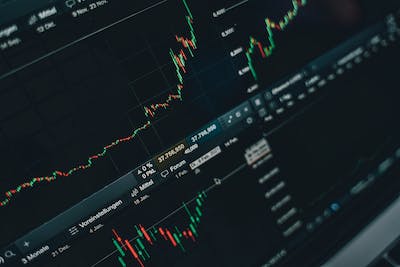Reasons Why You Shouldn’t Compare Yourself to Other Traders

Forex Hours
August 28, 2023
Exploring the Recent Trends: GBP vs USD Performance Over the Past Three Months
November 22, 2023Introduction
Trading in financial markets can be a challenging and rewarding endeavor. It\'s a world where individuals have the opportunity to make significant gains, but it\'s also a space that can be filled with stress and uncertainty. In this highly competitive environment, it\'s common for traders to compare themselves to others. While seeking inspiration and learning from successful traders can be beneficial, constantly measuring your success against that of others can lead to detrimental consequences. In this article, we\'ll explore the reasons why you shouldn\'t compare yourself to other traders and the potential pitfalls of doing so.
Different Trading Strategies
One of the foremost reasons why you shouldn\'t compare yourself to other traders is that everyone employs different trading strategies. Trading strategies can vary widely, from day trading and swing trading to long-term investing. Each strategy has its own set of rules, timeframes, and risk profiles. What works for one trader may not work for another, and comparing yourself to someone with a different strategy can lead to confusion and poor decision-making.
For example, a day trader who seeks to profit from short-term price fluctuations may have a different approach than a long-term investor who focuses on fundamentals and holds positions for years. Comparing your performance to traders with entirely different strategies can result in misguided actions that are not aligned with your chosen approach.
Unique Risk Tolerance
Risk tolerance is a critical factor in trading. It refers to the amount of risk an individual is willing and able to bear when making trading decisions. Traders have varying levels of risk tolerance, influenced by factors such as financial circumstances, investment goals, and psychological disposition. Some traders are comfortable with high levels of risk and are willing to accept larger potential losses, while others prefer a more conservative approach.
Comparing your risk tolerance to that of other traders can be detrimental. If you are a conservative trader, constantly comparing yourself to someone with a higher risk tolerance may lead to feelings of inadequacy or tempt you to take on risks that you are not comfortable with. Conversely, if you are a high-risk trader, comparing yourself to a more conservative trader may lead to impulsive actions that do not align with your risk appetite.
Diverse Financial Situations
Traders come from diverse financial backgrounds. Some may have significant capital to invest, while others have more limited resources. Financial circumstances can significantly impact trading decisions and outcomes. Comparing your financial situation to that of other traders can create unrealistic expectations and stress.
For instance, a trader with a substantial investment capital may have the ability to withstand larger drawdowns and trade with more flexibility. On the other hand, a trader with limited capital may need to be more cautious and selective in their trading. Constantly comparing your trading results to someone with a different financial situation can lead to frustration and disappointment.
5. Experience Levels
Experience plays a crucial role in trading success. Seasoned traders have often learned from their mistakes and developed their skills over time. Comparing yourself to more experienced traders, especially if you are a beginner, can be discouraging. It\'s important to remember that trading is a skill that takes time to develop, and every trader starts somewhere.
In the world of trading, novices and experts coexist, each at different stages of their journey. Instead of comparing yourself to experienced traders, focus on your own progress and continuous learning. With time and dedication, you can develop your skills and become a successful trader in your own right.
6. Psychological Impact
Constantly comparing yourself to other traders can have a significant psychological impact. It can lead to feelings of inadequacy, jealousy, or fear of missing out. These emotions can cloud your judgment and lead to impulsive trading decisions. Trading requires a disciplined and rational mindset, and emotional reactions can be detrimental to your success.
Furthermore, the fear of falling short compared to others can lead to overtrading or taking excessive risks to catch up. This can result in significant losses and damage your overall trading performance.
7. Market Conditions
Market conditions are ever-changing, and what works in one market environment may not work in another. Traders need to adapt their strategies to the prevailing market conditions. Comparing your performance to others during different market conditions can be misleading.
For instance, a strategy that is highly profitable in a bull market may yield losses in a bear market. Comparing yourself to traders who are thriving in different market conditions can lead to frustration and a lack of adaptability.
8.Focus on Process vs. Outcome
Successful trading is not solely about achieving short-term gains; it\'s about following a disciplined process. Comparing yourself to others often focuses on the outcome rather than the process. Instead of obsessing over profits or losses, successful traders prioritize their trading plan, risk management, and adherence to their strategy.
Focusing on the process allows you to make consistent and rational decisions, irrespective of short-term outcomes. It helps you avoid impulsive actions driven by a desire to match or outperform others.
9. Lack of control
You cannot control the actions or outcomes of other traders. Trading is influenced by a multitude of factors, including economic events, market sentiment, and geopolitical developments. Comparing yourself to others can create frustration and a sense of helplessness because you have no control over their decisions or the market itself.
It\'s essential to recognize that your trading success is primarily determined by your own actions and decisions. Instead of fixating on external factors, focus on refining your trading skills and strategies.
10. Individual Goals
Traders have different goals and objectives. Some aim for quick profits, while others focus on long-term investments. Comparing your goals to
Conclusion:
In the world of trading, the saying "comparison is the thief of joy" holds true. Constantly measuring your success against that of other traders can lead to a multitude of negative consequences. We've explored several compelling reasons why you shouldn't compare yourself to other traders, each highlighting the importance of maintaining a singular focus on your trading journey.
Remember that trading is a highly personalized endeavor. Each trader has their unique trading strategy, risk tolerance, financial situation, and goals. It's crucial to respect these individual differences and avoid the pitfalls of comparing yourself to others.
Instead, prioritize self-improvement, continuous learning, and adherence to your chosen trading plan. Develop the discipline to focus on the process rather than fixating on short-term outcomes. Embrace your unique circumstances, experience level, and risk tolerance as assets that contribute to your trading style.
Ultimately, the path to trading success is a personal one, marked by its challenges and triumphs. By refraining from constant comparisons and concentrating on your own growth, you can navigate these challenges with a clear and rational mindset, increasing your chances of achieving your trading goals and finding fulfillment in your trading journey.


